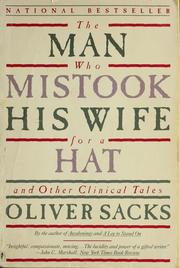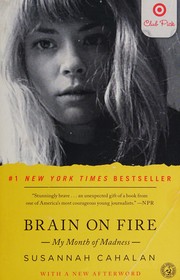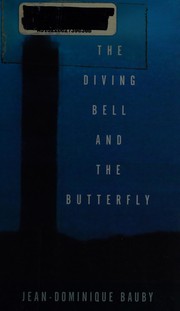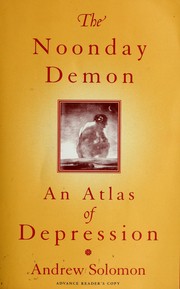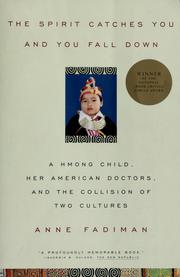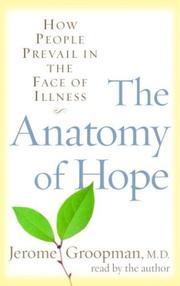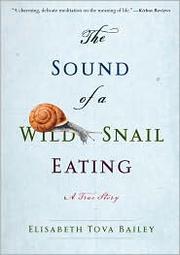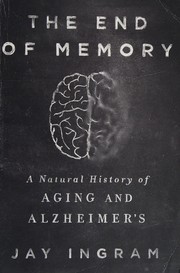Are you looking for a compelling book on illness that will both educate and inspire? Whether you’re seeking solace in a personal memoir or looking to understand the medical aspects of a specific condition, the world of literature offers a wealth of powerful stories and informative resources. In this article, we have curated a list of the 20 best books about illness that offer insight, empathy, and hope. From touching personal accounts to insightful medical narratives, these illness books provide a diverse and engaging perspective on the human experience of navigating health challenges. Get ready to delve into a world of empathy, understanding, and resilience as we explore these impactful reads.
Contents
- 1 20 Best Illness Books
- 2 The Immortal Life of Henrietta Lacks
- 3 When Breath Becomes Air
- 4 The Man Who Mistook His Wife for a Hat
- 5 The Emperor of All Maladies: A Biography of Cancer
- 6 Brain on Fire: My Month of Madness
- 7 The Diving Bell and the Butterfly
- 8 The Gene: An Intimate History
- 9 The Noonday Demon: An Atlas of Depression
- 10 The Year of Magical Thinking
- 11 The Mind’s Eye
- 12 The Spirit Catches You and You Fall Down
- 13 The Hot Zone: The Terrifying True Story of the Origins of the Ebola Virus
- 14 The Man Who Touched His Own Heart: True Tales of Science, Surgery, and Mystery
- 15 The Anatomy of Hope: How People Prevail in the Face of Illness
- 16 The Sound of a Wild Snail Eating
- 17 The End of Memory: A Natural History of Aging and Alzheimer’s
- 18 The Cancer Chronicles: Unlocking Medicine’s Deepest Mystery
- 19 The Autistic Brain: Thinking Across the Spectrum
- 20 The Bipolar Disorder Survival Guide: What You and Your Family Need to Know
- 21 The Man Who Couldn’t Stop: OCD and the True Story of a Life Lost in Thought
- 22 Final Thoughts on Best Illness Books
- 23
20 Best Illness Books
The Immortal Life of Henrietta Lacks
by Rebecca Skloot
The Immortal Life of Henrietta Lacks by Rebecca Skloot is a captivating and thought-provoking book about the incredible impact of one woman’s cells on medical science. Henrietta Lacks was a poor African American woman whose cells were taken without her knowledge in the 1950s and have since become one of the most important tools in medicine, contributing to countless breakthroughs in research and treatment. Skloot skillfully weaves together the story of Henrietta’s life and her family’s journey, with the scientific advancements and ethical questions raised by the use of her cells. This illness book raises important questions about medical ethics, race, and the power dynamics in the field of medicine. Skloot’s immersive storytelling and thorough research make this book a must-read for anyone interested in the intersection of science and human rights, and the profound impact of one woman’s illness on the world.
When Breath Becomes Air
by Paul Kalanithi
When Breath Becomes Air is a poignant memoir by Paul Kalanithi, a neurosurgeon diagnosed with terminal cancer. This profound book on illness chronicles Kalanithi’s journey from doctor to patient as he grapples with the devastating reality of his diagnosis. Through eloquent prose, he explores the complexities of life, death, and the search for meaning in the face of illness.
Kalanithi’s introspective reflections on mortality and the human experience are both heartbreaking and inspiring. His unwavering resilience and unwavering determination to find purpose in the midst of his illness is truly remarkable. As he confronts his own mortality, he shares profound insights about the fragility of life and the importance of living with intention.
When Breath Becomes Air is not just a book about illness; it is a testament to the strength of the human spirit and the power of love and hope in the face of adversity. Kalanithi’s beautifully written memoir is a stirring reminder of the preciousness of life and the resilience of the human spirit.
The Man Who Mistook His Wife for a Hat
by Oliver Sacks
The Man Who Mistook His Wife for a Hat by Oliver Sacks is a captivating book about neurological conditions and the human mind. Through a series of fascinating case studies, Sacks explores the intricacies of the brain and its impact on perception, memory, and identity. The book delves into the lives of individuals who have experienced a range of neurological disorders, offering a poignant and insightful look at the human experience in the face of adversity.
Sacks’ writing is both compassionate and thought-provoking, as he skillfully weaves together scientific knowledge, personal narratives, and philosophical reflections. The stories within the book are both heartrending and uplifting, shedding light on the resilience of the human spirit in the face of adversity. The Man Who Mistook His Wife for a Hat is a truly remarkable exploration of the complexities of the human brain and the profound impact of illness on individuals and their loved ones.
The Emperor of All Maladies: A Biography of Cancer
by Siddhartha Mukherjee
The Emperor of All Maladies: A Biography of Cancer by Siddhartha Mukherjee is a groundbreaking book about the history, science, and human impact of cancer. This Pulitzer Prize-winning work takes readers on a journey through the centuries, exploring the origins of cancer, its complex biology, and the relentless human quest to understand and conquer this formidable adversary. Mukherjee’s writing is both captivating and informative, delving into the personal stories of patients, the tireless efforts of researchers, and the societal impact of this pervasive illness.
By blending historical narrative with cutting-edge scientific research, Mukherjee provides a comprehensive and engaging look at the “emperor of all maladies.” This illness book serves as a testament to the human spirit and the unyielding determination to confront and overcome the challenges posed by cancer. Whether you have a personal connection to cancer or simply have an interest in the history and science of illness, this book is a must-read for anyone seeking a deeper understanding of this formidable foe.
Brain on Fire: My Month of Madness
by Susannah Cahalan
Brain on Fire: My Month of Madness by Susannah Cahalan is a gripping memoir that chronicles the author’s harrowing experience with a rare and mysterious illness. Cahalan, a young journalist working in New York City, suddenly finds herself descending into madness, experiencing seizures, paranoia, and hallucinations. As her behavior becomes increasingly erratic, her family and doctors struggle to diagnose her condition, leaving her teetering on the brink of insanity.
The book takes readers on a compelling journey as Cahalan pieces together the events of her lost month, providing a raw and intimate account of her battle with a disease that threatened to erase her identity and sanity. Her story is a poignant reminder of the fragility of the human mind and the resilience of the human spirit. Through her vivid and honest storytelling, Cahalan sheds light on the complexities of mental illness and the challenges of navigating the healthcare system in the face of a little-known condition. Brain on Fire is a powerful and unforgettable read that offers insight into the terrifying and isolating world of illness.
The Diving Bell and the Butterfly
by Jean-Dominique Bauby
The Diving Bell and the Butterfly by Jean-Dominique Bauby is a poignant and powerful memoir that offers a unique perspective on the human experience. This remarkable book chronicles Bauby’s life after suffering a debilitating stroke that left him with locked-in syndrome, a condition in which the body is paralyzed but the mind remains alert and active. Through the use of his left eyelid, Bauby painstakingly dictated this memoir, letter by letter, as he lay immobile in a hospital bed.
Despite his profound physical limitations, Bauby’s prose is vivid and lyrical, offering readers a glimpse into his rich inner world. The Diving Bell and the Butterfly is a profound meditation on the resilience of the human spirit in the face of adversity, and a testament to the power of the human imagination. This book about illness is a testament to the triumph of the human spirit, and a reminder of the beauty and fragility of life.
The Gene: An Intimate History
by Siddhartha Mukherjee
The Gene: An Intimate History by Siddhartha Mukherjee is a captivating exploration of the complex and fascinating world of genetics. In this groundbreaking book, Mukherjee takes readers on a journey through the history of genetics, from its discovery to the present day, and delves into the profound impact that genes have on our lives. This compelling narrative weaves together science, history, and personal stories to provide a comprehensive understanding of the role genes play in shaping human existence. Mukherjee’s compelling storytelling and in-depth research make this book a gripping read for anyone interested in the intricacies of the human genome.
The Noonday Demon: An Atlas of Depression
by Andrew Solomon
The Noonday Demon: An Atlas of Depression is a profound exploration of the depths of despair and the complexities of depression. In this poignant illness book, Andrew Solomon delves into the shadows of the human mind, using his own personal experiences and extensive research to create a comprehensive map of the emotional and psychological landscapes of depression.
Solomon’s writing is both eloquent and raw, as he delves into the various manifestations of the illness and its impact on individuals, families, and society as a whole. The book is a powerful testament to the resilience of the human spirit and offers a glimmer of hope amidst the darkness of depression. With a keen eye for detail and a compassionate understanding of the human condition, Solomon paints a vivid picture of the often misunderstood and stigmatized illness, shedding light on its complexities and the ways in which it can be navigated and understood.
The Noonday Demon is a vital read for anyone seeking to gain a deeper understanding of the complexities of depression and the resilient human spirit.
The Year of Magical Thinking
by Joan Didion
The Year of Magical Thinking is a poignant memoir by Joan Didion, delving into the depths of grief and the human psyche. The book chronicles Didion’s experience of losing her husband and grappling with the aftermath of his death. This profound and introspective work offers a raw and unflinching portrayal of the emotional turmoil that comes with bereavement. Didion’s writing is both eloquent and deeply moving, as she explores the complexities of love, loss, and the fragility of life.
This is not just a book on illness, but a profound exploration of the human condition and the ways in which we cope with trauma. Didion’s exquisite prose and unflinching honesty make The Year of Magical Thinking a compelling read for anyone seeking to understand the depths of grief and the resilience of the human spirit. It is a must-read for those interested in a deeply personal and introspective account of the human experience.
The Mind’s Eye
by Oliver Sacks
The Mind’s Eye by Oliver Sacks is a captivating exploration of the impact of neurological disorders on perception and creativity. In this thought-provoking book, Sacks delves into the experiences of individuals who have been affected by various neurological conditions, such as blindness and aphasia. Through a series of fascinating case studies, he offers profound insights into the ways in which the mind adapts and compensates for the loss of sensory and cognitive abilities. Sacks’s deeply empathetic and insightful approach sheds light on the complex and often overlooked aspects of living with a neurological illness.
With his characteristic blend of scientific expertise and humane storytelling, Sacks brings to life the inner worlds of individuals grappling with these challenges, offering a unique perspective on the resilience and creativity that can emerge in the face of adversity. The Mind’s Eye is a compelling and illuminating read that will resonate with anyone interested in the profound effects of neurological conditions on human experience.
The Spirit Catches You and You Fall Down
by Anne Fadiman
The Spirit Catches You and You Fall Down by Anne Fadiman is a captivating book about illness that explores the clash between Western medicine and Hmong cultural beliefs. The book follows the story of a Hmong family in California whose daughter, Lia, suffers from severe epilepsy. As Lia’s parents struggle to navigate the complex American healthcare system, they find themselves at odds with the doctors who are trying to treat their daughter.
Fadiman delves into the cultural divide between the Hmong and the medical professionals, shedding light on the challenges of communication, understanding, and trust. Through this poignant and thought-provoking narrative, she raises important questions about the intersection of culture, tradition, and modern medicine.
The Spirit Catches You and You Fall Down is a powerful and eye-opening book on illness that encourages readers to consider the broader implications of cultural diversity in healthcare. Fadiman’s storytelling and meticulous research make this illness book a must-read for anyone interested in the human experience.
The Hot Zone: The Terrifying True Story of the Origins of the Ebola Virus
by Richard Preston
The Hot Zone: The Terrifying True Story of the Origins of the Ebola Virus by Richard Preston is a gripping book about illness that delves into the origins and terrifying spread of the Ebola virus. Preston takes readers on a thrilling journey through the discovery of this deadly virus, with a focus on the 1989 outbreak in Reston, Virginia, and the subsequent efforts to contain it.
This illness book offers a chilling look at the impact of the virus on both humans and primates, as well as the heroic efforts of scientists and medical professionals to understand and combat it. With a narrative style that reads like a suspenseful thriller, The Hot Zone is a page-turner that will keep readers on the edge of their seats as they learn about the real-life horrors of a deadly illness.
Richard Preston’s meticulous research and vivid storytelling make The Hot Zone a must-read for anyone interested in the science of infectious diseases, as well as those who enjoy a gripping, true-life tale of danger and discovery.
The Man Who Touched His Own Heart: True Tales of Science, Surgery, and Mystery
by Rob Dunn
The Man Who Touched His Own Heart: True Tales of Science, Surgery, and Mystery by Rob Dunn is a captivating exploration of the human heart and the incredible advancements in medical science. The book delves into the history of heart surgery, from ancient practices to modern breakthroughs, and shares fascinating true stories of patients, doctors, and researchers who have pushed the boundaries of what is possible in cardiac care.
With a blend of gripping narrative and scientific insight, Dunn takes readers on a journey through the complexities of the human heart, uncovering the mysteries of its inner workings and the remarkable individuals who have dedicated their lives to understanding and treating heart conditions. This book is a must-read for anyone interested in the intersection of medicine, history, and human experience.
Whether you are a medical professional, a science enthusiast, or simply curious about the human body, The Man Who Touched His Own Heart offers an enlightening and thought-provoking exploration of the triumphs and challenges of treating one of the most vital organs in the body.
The Anatomy of Hope: How People Prevail in the Face of Illness
by Jerome Groopman
The Anatomy of Hope: How People Prevail in the Face of Illness by Jerome Groopman is an insightful exploration of the power of hope in the midst of adversity. In this compelling book about illness, Groopman, a renowned doctor and writer, delves into the stories of his patients and their experiences with various illnesses, demonstrating how hope can play a crucial role in the healing process. Through poignant anecdotes and scientific research, he reveals the profound impact of hope on patients’ resilience and ability to cope with their conditions. Groopman’s compassionate and thought-provoking narrative encourages readers to consider the psychological and emotional aspects of illness, emphasizing the importance of maintaining a positive outlook in the face of adversity. The Anatomy of Hope is a compelling and uplifting read that offers a fresh perspective on the human experience of illness and the remarkable capacity for hope to triumph over adversity.
The Sound of a Wild Snail Eating
by Elisabeth Tova Bailey
The Sound of a Wild Snail Eating by Elisabeth Tova Bailey is a captivating and intimate book about illness. The author shares her personal journey of being bedridden due to a mysterious illness and finding solace in the companionship of a wild snail that she keeps in a terrarium by her bedside. Through her observations of the snail’s simple but profound existence, Bailey reflects on the resilience of life and the interconnectedness of all living beings. The book offers a unique perspective on the experience of chronic illness and the healing power of nature, as well as the beauty of small moments in the midst of adversity. With lyrical prose and keen insights, Bailey crafts a moving narrative that will resonate with readers who have experienced their own struggles with health and illness. The Sound of a Wild Snail Eating is a poignant and tender exploration of the human spirit and the intricate wonders of the natural world.
The End of Memory: A Natural History of Aging and Alzheimer’s
by Jay Ingram
The End of Memory: A Natural History of Aging and Alzheimer’s by Jay Ingram is an insightful exploration of the complexities of aging and the devastating impact of Alzheimer’s disease. In this compelling book about illness, Ingram delves into the science and history of Alzheimer’s, offering a comprehensive understanding of the disease and its effects on memory and cognition. Through engaging storytelling and thought-provoking analysis, he uncovers the intricate mechanisms of the brain and the gradual decline of memory and mental faculties in old age.
With a blend of scientific research and personal narratives, The End of Memory takes readers on a journey through the mysteries of the human mind and the profound challenges of living with Alzheimer’s. Ingram’s compassionate approach and accessible writing style make this illness book a must-read for anyone seeking a deeper understanding of aging, memory loss, and the impact of Alzheimer’s on individuals and their loved ones. The End of Memory is a poignant and enlightening exploration of a disease that has touched the lives of millions worldwide.
The Cancer Chronicles: Unlocking Medicine’s Deepest Mystery
by George Johnson
The Cancer Chronicles: Unlocking Medicine’s Deepest Mystery by George Johnson is a captivating book about illness that delves into the history and science of cancer. With a compelling narrative, the author takes readers on a journey through time, exploring the ancient origins of cancer and the modern advancements in medical research.
Johnson’s exploration of this complex and often misunderstood illness book is both informative and thought-provoking, as he investigates the various theories and treatments that have shaped our understanding of cancer. Through engaging storytelling and in-depth analysis, the author sheds light on the enigmatic nature of this disease and the ongoing quest to find a cure.
Whether you are a science enthusiast or simply curious about the mysteries of the human body, The Cancer Chronicles offers a fascinating look at the history, science, and future of cancer research. With its insightful and accessible approach, this book on illness is a must-read for anyone interested in the complexities of the human condition.
The Autistic Brain: Thinking Across the Spectrum
by Temple Grandin
The Autistic Brain: Thinking Across the Spectrum by Temple Grandin is a fascinating exploration of the complex and unique way that autistic individuals think. Grandin, who herself is on the autism spectrum, provides a personal and insightful perspective on the topic. This book on neurodiversity delves into the strengths and challenges of having an atypical brain, offering valuable insights for both autistic individuals and those who interact with them.
Grandin’s engaging writing style and wealth of knowledge make this illness book a must-read for anyone interested in understanding the autistic mind. She explores the latest research on autism and provides practical advice for parents, educators, and employers. Through her own experiences and those of others on the spectrum, Grandin highlights the importance of embracing neurodiversity and accommodating different thinking styles.
Whether you are personally affected by autism or simply curious about the topic, The Autistic Brain is a thought-provoking and enlightening read that will challenge your perceptions and deepen your understanding of the diverse ways in which our brains can work.
The Bipolar Disorder Survival Guide: What You and Your Family Need to Know
by David J. Miklowitz
The Bipolar Disorder Survival Guide: What You and Your Family Need to Know is a comprehensive and compassionate book about the challenges of living with bipolar disorder. Written by David J. Miklowitz, a leading expert in the field, this illness book provides practical advice, information, and support for individuals and their loved ones who are affected by this condition.
With a focus on managing symptoms, preventing relapse, and improving relationships, this book on illness offers a wealth of strategies for coping with the ups and downs of bipolar disorder. Miklowitz also addresses the impact of the illness on family dynamics, providing guidance for family members on how to offer support while also taking care of themselves.
Whether you are newly diagnosed or have been living with bipolar disorder for years, this illness book is an invaluable resource that combines the latest research with real-life stories and practical tips. It’s a must-read for anyone looking to better understand and manage bipolar disorder.
The Man Who Couldn’t Stop: OCD and the True Story of a Life Lost in Thought
by David Adam
The Man Who Couldn’t Stop: OCD and the True Story of a Life Lost in Thought by David Adam is a captivating book about a man’s struggle with obsessive-compulsive disorder (OCD). In this compelling illness book, Adam shares his personal experience of living with OCD, taking readers on a journey through the intricate workings of his mind and the relentless thoughts that consumed his everyday life.
Through his poignant and candid storytelling, Adam provides an intimate look into the challenges and complexities of living with a mental illness, offering a raw and unfiltered perspective on the impact it has on one’s life and relationships. With a blend of scientific insight and personal narrative, the book offers a deep understanding of the disorder while also shedding light on the stigma and misconceptions surrounding mental illness.
With its powerful portrayal of the inner turmoil caused by OCD, The Man Who Couldn’t Stop is a thought-provoking and illuminating read that will resonate with anyone who has experienced the relentless grip of a mental illness.
Final Thoughts on Best Illness Books
Exploring the world of books about Illness can provide valuable insights, comfort, and inspiration for those facing health challenges. From memoirs to scientific explorations, these 20 best books offer a diverse and enlightening perspective on illness. Whether seeking understanding, empathy, or guidance, these books have the power to inform and uplift readers as they navigate the complexities of health and healing.
Which book about Illness is best?
The best book on Illness can vary with personal preference, but three widely recommended titles are:
- The Immortal Life of Henrietta Lacks by Rebecca Skloot,
- When Breath Becomes Air by Paul Kalanithi,
- The Man Who Mistook His Wife for a Hat by Oliver Sacks.
Each offers valuable insights and could be a great starting point.
What are the best books to learn about Illness?
For those looking to learn about Illness, there is a wealth of literature that can provide a comprehensive understanding of the subject. Some of the most highly recommended books include:
- The Immortal Life of Henrietta Lacks by Rebecca Skloot,
- When Breath Becomes Air by Paul Kalanithi,
- The Man Who Mistook His Wife for a Hat by Oliver Sacks,
- The Emperor of All Maladies: A Biography of Cancer by Siddhartha Mukherjee,
- Brain on Fire: My Month of Madness by Susannah Cahalan,
- The Diving Bell and the Butterfly by Jean-Dominique Bauby,
- The Gene: An Intimate History by Siddhartha Mukherjee,
- The Noonday Demon: An Atlas of Depression by Andrew Solomon,
- The Year of Magical Thinking by Joan Didion,
- The Mind’s Eye by Oliver Sacks
These books offer a range of perspectives on Illness, covering various aspects and approaches to the subject.
What are the best books about Illness?
The best books about Illness are:
- The Immortal Life of Henrietta Lacks by Rebecca Skloot,
- When Breath Becomes Air by Paul Kalanithi,
- The Spirit Catches You and You Fall Down by Anne Fadiman,
- The Hot Zone: The Terrifying True Story of the Origins of the Ebola Virus by Richard Preston,
- The Noonday Demon: An Atlas of Depression by Andrew Solomon,
- The Diving Bell and the Butterfly by Jean-Dominique Bauby.
Each offers unique insights into the subject. While these books about Illness are highly regarded, it’s important to note that any list of ‘best’ books is subjective and reflects a range of opinions.
What are the best Illness books of all time?
Choosing the best Illness books of all time can vary depending on who you ask, but five titles that are often celebrated include
- The Immortal Life of Henrietta Lacks by Rebecca Skloot,
- When Breath Becomes Air by Paul Kalanithi,
- Brain on Fire: My Month of Madness by Susannah Cahalan,
- The Noonday Demon: An Atlas of Depression by Andrew Solomon,
- and The Spirit Catches You and You Fall Down by Anne Fadiman.
Each of these books has made a significant impact in the field of Illness and continues to be influential today.



